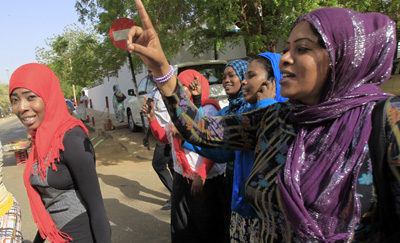New York, March 1, 2012–Sudanese authorities must halt their efforts to silence news coverage of opposition leadership, the Committee to Protect Journalists said today. Authorities have already closed three newspapers in 2012 and confiscated thousands of copies, CPJ research shows.
The National Intelligence and Security Services (NISS) confiscated the entire print run of the independent daily Al-Tayar on February 20 after the paper printed claims by Hassan al-Turabi, head of the opposition Popular Congress Party (PCP) and leading critic of President Omar al-Bashir, saying the NISS had bugged his office, according to news reports. Two days later, the NISS indefinitely suspended Al-Tayar on charges of “jeopardizing national security,” news reports said. The newspaper frequently ran investigative stories on government corruption, its editor, Osman Mirghani, told Reuters.
Also on February 20, authorities confiscated the entire print run of independent daily Al-Youm al-Tali for publishing al-Turabi’s accusations, news reports said.
“By closing news outlets and seizing newspapers, President al-Bashir’s government demonstrates its continuing appetite to censor critical news coverage,” said Mohamed Abdel Dayem, CPJ’s Middle East and North Africa program coordinator. “The government must immediately allow the shuttered newspapers to resume operations, and it should stop its practice of seizing every newspaper edition that carries an unflattering story.”
Al-Tayar is the third newspaper to be closed in the past two months, CPJ research shows. Authorities shut down Rai al-Shaab, a daily affiliated with al-Turabi’s party, after raiding its office and confiscating its print run in early January, news outlets reported. The NISS also raided the offices of another private daily, Alwan, which had published several articles in support of al-Turabi, and confiscated its print run in mid-January, news reports said.
In 2011, authorities confiscated newspaper print runs on at least 19 different occasions, CPJ research shows. In each case, the authorities waited for the newspapers to be printed and then confiscated the copies before they were distributed, thus inflicting maximum financial losses.
